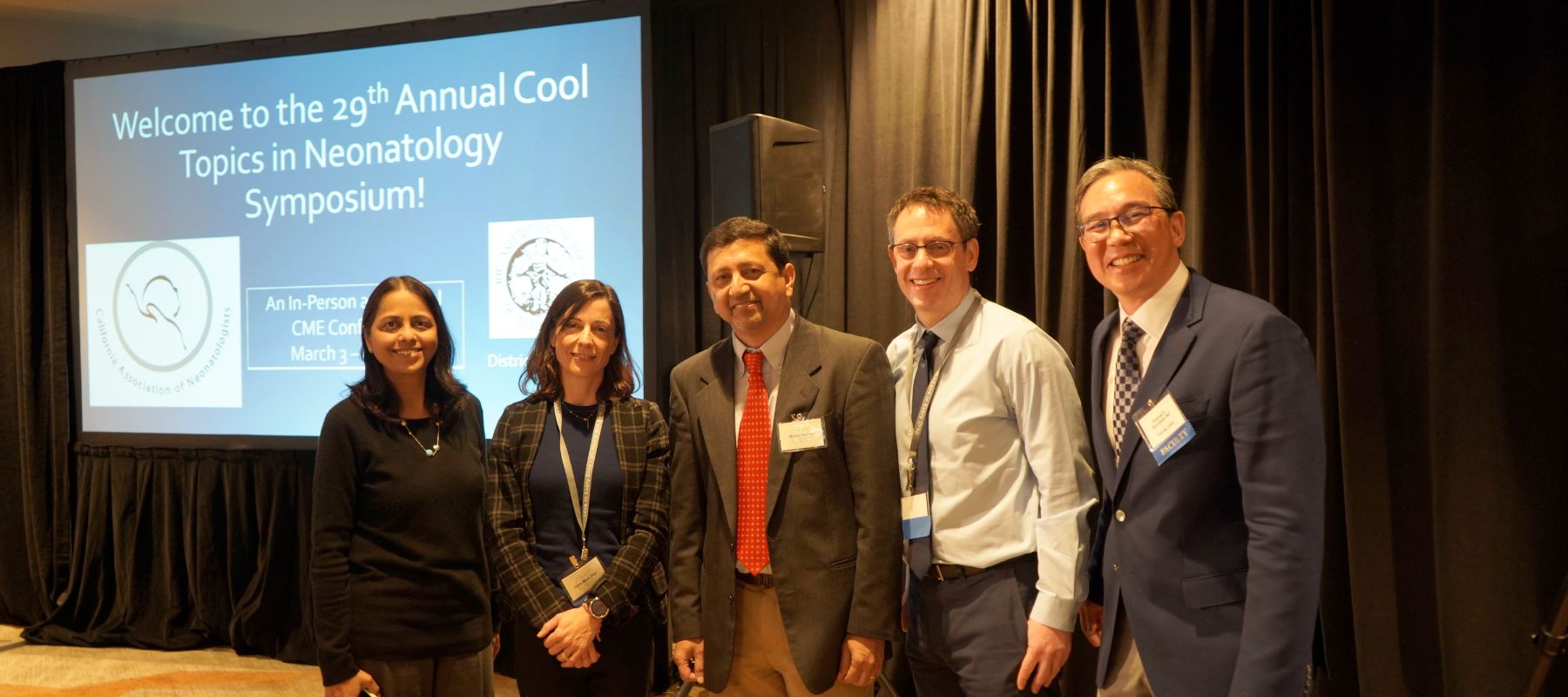Fostering Innovation and Learning for the Future
Chair: Manoj Biniwale
NEW! The CAN Research and Education Committee recently published a new study in the Journal of Perinatology titled “Transcutaneous bilirubin levels in extremely preterm infants less than 30 weeks gestation.” This multicenter study performed in eight CA NICUs highlights the role of non-invasive TcB as a useful screening tool for jaundice in extremely preterm infants.
Please note you must be a member of CAN before joining our subcommittees.

Be part of a dynamic network committed to groundbreaking research and education in neonatal-perinatal medicine. Your expertise and passion can drive innovations that improve the care of our smallest patients and their families.
The Research and Education Committee is charged with creating and overseeing programs that support education, research in, and the teaching of neonatal-perinatal medicine. This mission includes support of the Association’s relationship with CPQCC, dissemination of educational materials, and review of applications for research grants from the Association. The Research and Education Committee is responsible for developing and maintaining academic relationships with key medical professionals such as neonatal-perinatal fellows (through TECaN) and neonatal nurse practitioners (through NANN).
The CAN Research and Education Committee is a successful collaborative network of academic and community Neonatologists who meet monthly to create and oversee programs that support education, research in, and teaching of Neonatal-Perinatal Medicine. We have successfully conducted the Transcutaneous bilirubin study (TCB study) in extremely preterm infants with abstract presentations at PAS, AAP, and the Cool Topics Conference, and a manuscript in progress.
In addition to the multi-center research study, the committee invites faculty and fellow trainees to share their research (clinical and basic science) at the monthly meetings. The presentations have been very well received and have provided a unique opportunity for fellow trainees to obtain a broad perspective and interact with Neonatologists in the State.
Faculty presentations in 2020 & 2021:
Fellow presentations in 2021:
Ongoing research studies:
A multicenter study of outcomes of infants with surgically managed NEC- Led by Dr. Gerald Gollin, UC San Diego. So far, 8-9 Centers (CA and TX) are interested in participating in this project.
Objectives of the study include: